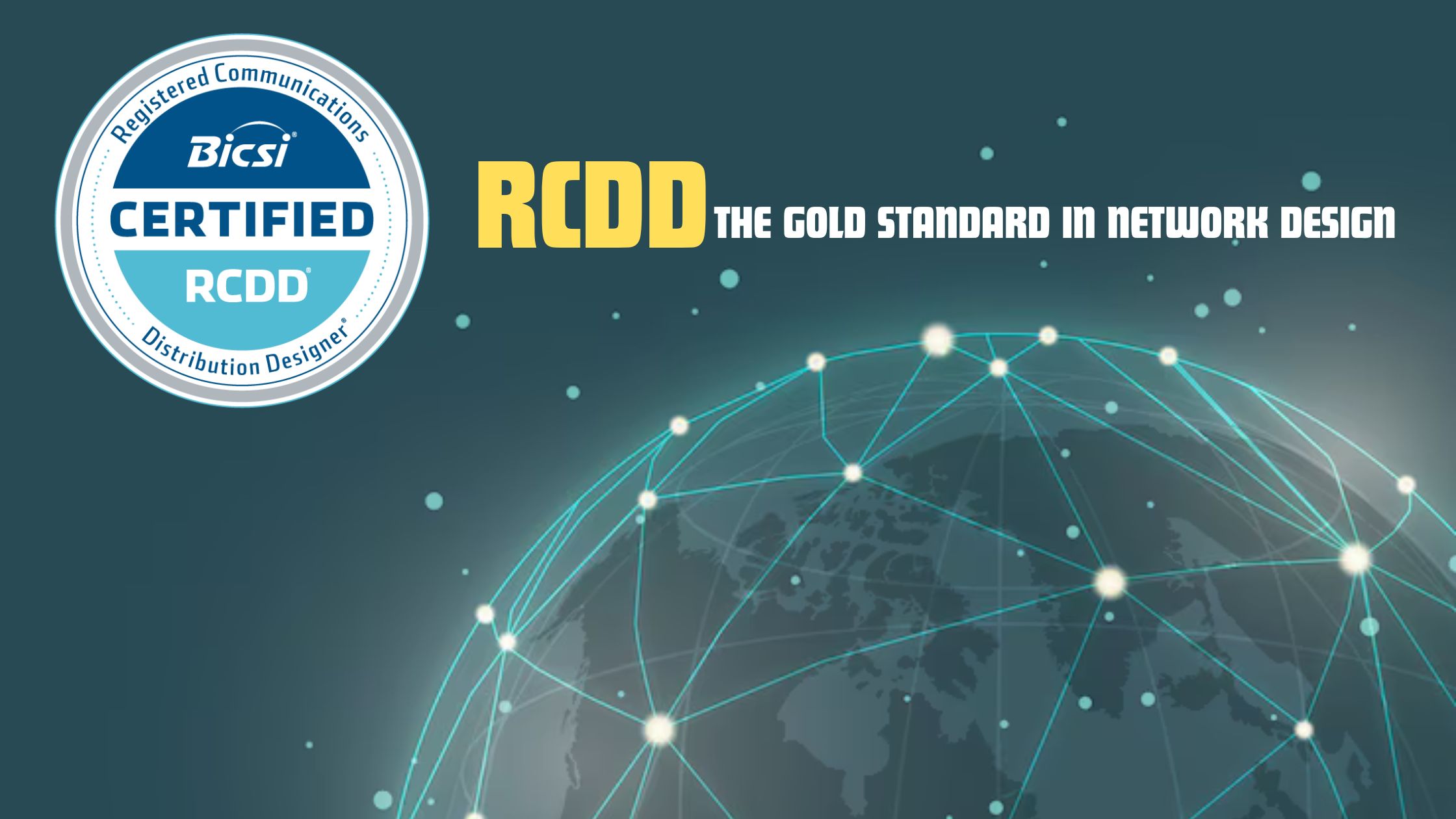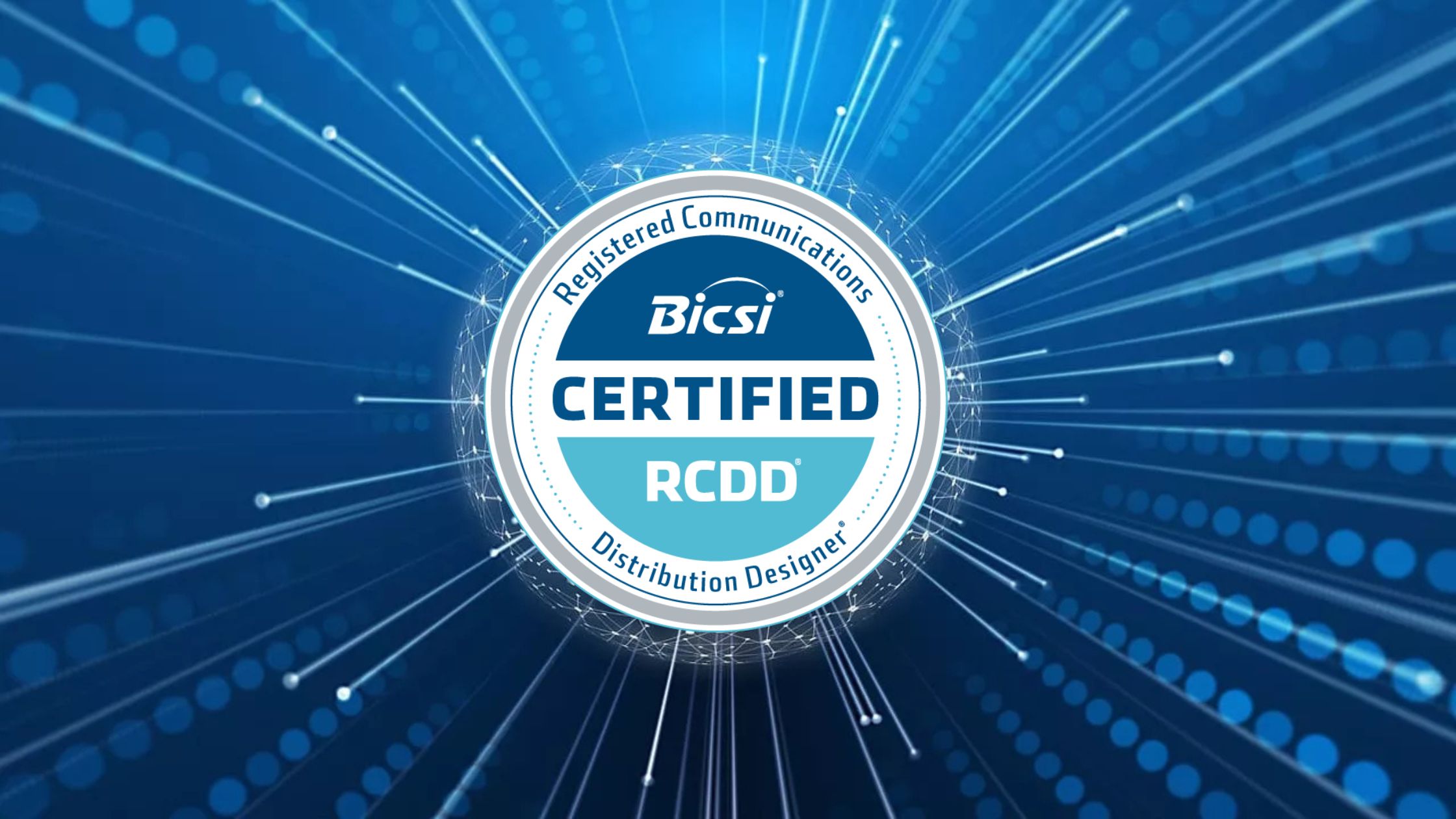Elevate your career by earning the elite RCDD certification. Get expert training to design complex, compliant ICT infrastructure for NYC's demanding projects. Enroll now!
The pace of technology in New York City—from Wall Street’s high-frequency trading floors to the vast data centers and sophisticated networks powering its media and corporate giants—demands a level of Information and Communications Technology (ICT) infrastructure design expertise found in few other places. As the digital demands on the built environment continue to skyrocket, the professionals who can seamlessly integrate complex voice, data, video, and security systems are becoming indispensable. At the pinnacle of this field stands the Registered Communications Distribution Designer (RCDD) certification, issued by BICSI. For aspiring and established designers looking to validate their skills and command top-tier projects, pursuing the RCDD Certification in New York is not just an advantage—it is often a prerequisite for serious career advancement.
What is the RCDD Certification?
The RCDD is one of the most prestigious vendor-neutral accreditations a designer can achieve in the ICT industry. It signifies that the individual possesses the knowledge and proficiency to develop comprehensive plans, specifications, and working drawings for complex structured cabling and telecommunications distribution systems. An RCDD is responsible for ensuring that modern buildings are equipped with the robust and future-proof infrastructure necessary to support current and emerging technologies.The certification's focus is broad, covering everything from copper and fiber optic cabling systems to grounding, bonding, firestopping, and the critical design elements of telecommunications rooms and data centers. The RCDD designation proves expertise in applying the standards, codes, and best practices that govern all aspects of ICT infrastructure design. In a market as intensely regulated and sophisticated as New York, having an RCDD leading a project is often viewed as a guarantee of quality and compliance.
The Unique Value of RCDD in the New York Market
New York presents a unique set of challenges that magnify the value of the RCDD Certification. The density of high-rise construction, the demand for ultra-high-speed connectivity in financial and tech sectors, and the complexity of renovating historical structures all require expert design.
- High-Stakes Projects: New York is home to world-class corporations, hospitals, universities, and government facilities. Projects here are typically high-budget and require adherence to rigorous specifications. RCDDs are overwhelmingly preferred, and often required, for design-build teams bidding on these critical infrastructure projects.
- Code Compliance and Standards: Navigating the myriad of local building codes, fire safety regulations, and industry standards (like TIA/EIA) can be daunting. The RCDD curriculum heavily emphasizes these standards, ensuring that certified designers in New York can create compliant and safe systems, reducing project risk and costly redesigns.
- Complex Environments: Designing ICT infrastructure in a congested metropolitan area involves navigating unique challenges such as limited conduit space, electromagnetic interference (EMI), and ensuring seamless vertical distribution in skyscrapers. The specialized knowledge gained through the RCDD program directly addresses these complexities, making certified professionals highly sought after by engineering firms, architectural companies, and IT consultancies in the region.
The Path to RCDD Certification
Achieving the RCDD Certification is a rigorous process that demands dedication and practical experience.
Eligibility and Experience
BICSI requires candidates to have a minimum level of experience before sitting for the exam. This typically includes:
- Two years of approved, relevant experience in the ICT design field; OR
- Possession of a current, approved ICT industry certification or an associate degree or higher, plus one year of approved, relevant experience.
Education and Training
While self-study is an option, most successful candidates for the RCDD Certification in New York choose to enroll in specialized training courses. These comprehensive programs, often hosted locally or virtually by training centers focused on BICSI standards, break down the complex topics covered in the Telecommunications Distribution Methods Manual (TDMM), the core text for the exam. Utilizing local resources allows candidates to network and study in an environment that understands the specific demands of the New York infrastructure market.
The Exam
The RCDD examination is a challenging, multiple-choice test designed to assess the candidate's understanding of all 14 chapters of the TDMM. Success requires not just memorization but the ability to apply design principles and standards to real-world scenarios.
Career Outlook and Compensation
For individuals holding the RCDD Certification in New York, the career outlook is exceptionally bright. Data centers continue to expand, 5G networks are being deployed, and the constant demand for smart building integration ensures a steady stream of high-level work. RCDDs often hold titles such as Telecommunications Engineer, Design Manager, or Principal Consultant. In the high-cost, high-demand New York area, the RCDD designation is proven to correlate with a significant premium in salary, distinguishing certified individuals from their non-certified peers and opening doors to leadership roles.
Conclusion
The RCDD Certification in New York is an investment that pays substantial dividends. It’s a powerful credential that not only validates a designer’s mastery of the ICT infrastructure domain but also positions them as a trusted expert in one of the world's most challenging and rewarding construction markets. For anyone serious about a long-term, high-impact career in telecommunications and IT design, becoming an RCDD is the clear step toward achieving that goal.
FAQs about RCDD Certification in New York
Q1: What is the primary resource I should study for the RCDD exam?
A: The definitive resource is the BICSI Telecommunications Distribution Methods Manual (TDMM), which serves as the body of knowledge for the RCDD exam. All exam questions are based on the content and principles detailed in the manual.
Q2: How long is the RCDD certification valid?
A: The RCDD Certification is valid for three years. To maintain the certification, designers must accrue a specified number of continuing education credits (CECs) and pay a renewal fee within that three-year cycle.
Q3: Do I need a college degree to get the RCDD Certification?
A: No, a degree is not strictly required. BICSI accepts a combination of relevant design experience. The requirement is a minimum of two years of approved, current, relevant ICT design experience. A degree can substitute for one year of experience if it is an associate degree or higher.
Q4: Why is the RCDD Certification particularly important for projects in New York City?
A: In NYC, projects are highly complex, often involving high-rise construction, stringent fire and building codes, and massive data/security requirements (especially for finance and tech companies). The RCDD credential assures clients and city regulators that the designer understands and can apply the necessary international and local standards for robust, compliant infrastructure.
Q5: What kind of jobs do RCDDs hold in the New York area?
A: RCDDs in New York typically work for engineering firms, architectural firms, large corporations (as in-house infrastructure specialists), and specialized IT consulting companies. Common job titles include Telecommunications Designer, BICSI Design Manager, and Senior Systems Engineer.


